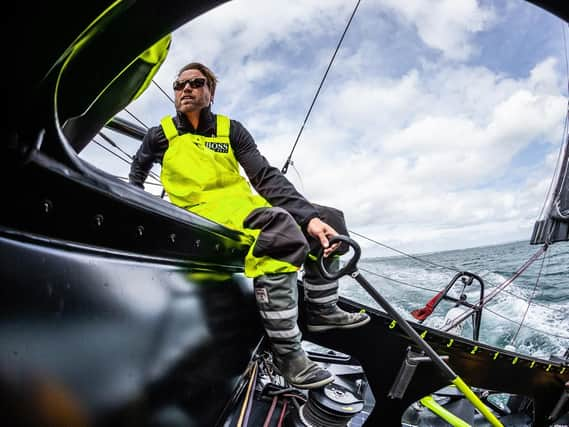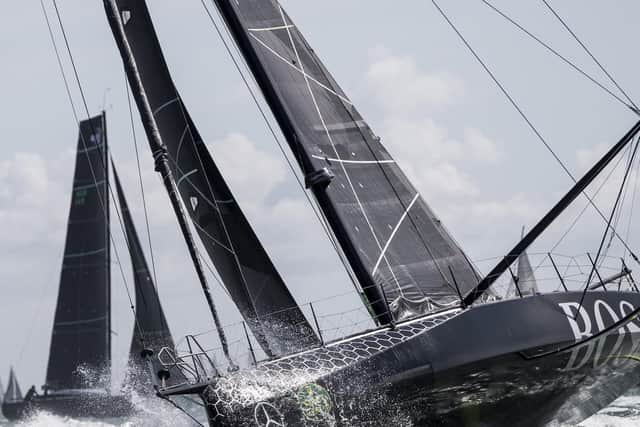Why Gosport sailor Alex Thomson's team is ditching fossil fuels for round-the-world race


Gosport-based Alex Thomson Racing has announced that it will be moving to an electric motor '“ powered by solar panels '“Â for the 2020/21 Vendee Globe Race.
The team, which is building a new 60ft Hugo Boss sailing boat for the challenge, wants to promote sustainable energy.
Advertisement
Hide AdAdvertisement
Hide AdSkipper Alex Thomson believes the new system could give them an edge over his rivals.


He said: '˜There is often a perception that implementing more sustainable systems can bring about a performance disadvantage but we don't believe that needs to be the case in our sport.
'˜In fact, we think that integrating more sustainable systems could actually deliver certain advantages, and that's an exciting prospect for our team.'
The team is partnering with electric power unit manufacturers Oceanvolt to deliver a system designed to withstand the demands of the gruelling round-the-world campaign.
Advertisement
Hide AdAdvertisement
Hide AdTechnical director Ross Daniel said: '˜As a team, we are committed to operating in the most sustainable, responsible way possible, and that commitment will filter through to the new Hugo Boss boat.
'˜On the new boat, we will explore solar energy as the primary power source, via solar panels located across the deck.
'˜In order to do so, we must consider not only the duration of the race but also the conditions that the boat will be exposed to. For example, when Alex finds himself in the depths of the southern ocean where there is restricted direct sunlight, we have to be sure that the solar panels are still capable of delivering the amount of energy that the boat requires.'
Janne Kjellman, founder of Oceanvolt, added: '˜We are thrilled at the opportunity to test our new technology in extreme racing condition.'